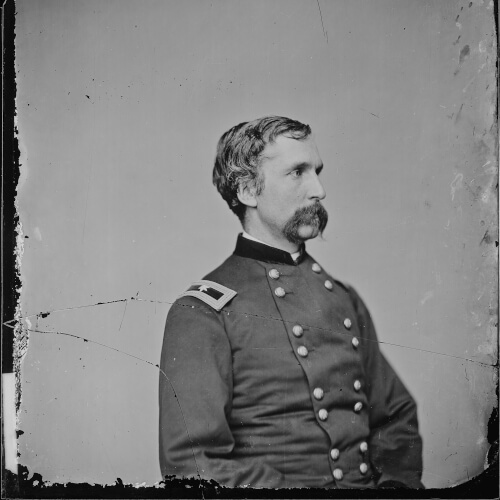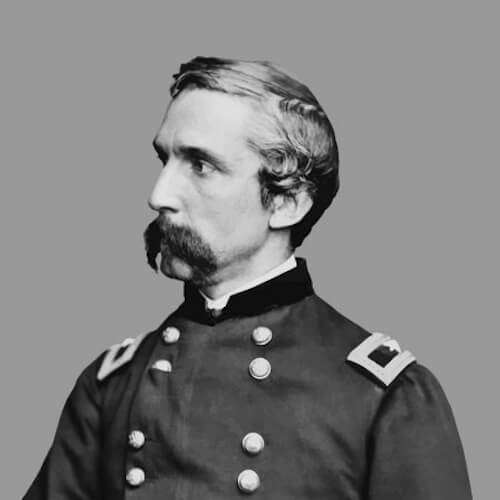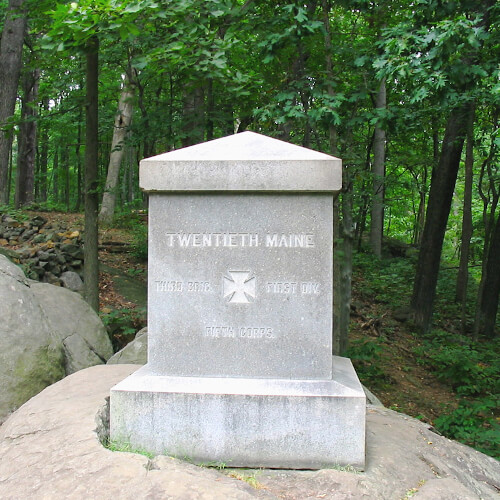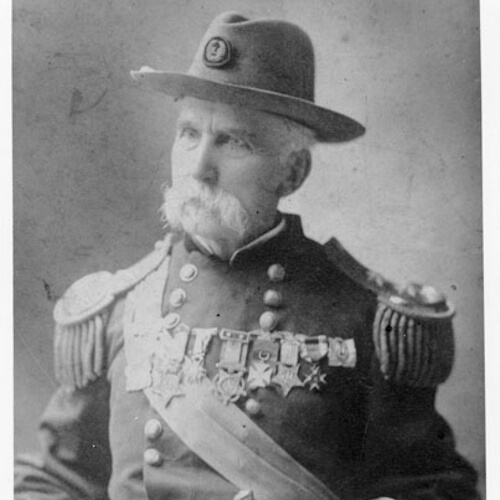Famous People of the Civil War
Learning about the lives of some famous Civil War era individualsJoshua Lawrence Chamberlain
Joshua Lawrence Chamberlain was a professor of rhetoric who became the commander of the 20th Maine Regiment and he earned the Medal of Honor for his heroic actions during the Battle of Gettysburg. Chamberlain also accepted the Confederacy’s surrender of arms at Appomattox at the war’s end After the war, he served four terms as the governor of Maine and was later appointed President of Bowdoin College.
Early Life
Joshua Lawrence Chamberlain was born on September 8, 1828 in Brewer Maine to Joshua and Sarah Chamberlain. With a family history of serving in the military, Chamberlain attended the military academy in Ellsworth, Maine and then in 1848, enrolled at Bowdoin College. In 1855, he received a bachelor’s degree in divinity at Bangor Theological Seminary. On December 7, 1855, he married Frances “Fannie” Caroline Adams. Following his marriage, Chamberlain returned to Bowdoin College, serving on the faculty as an instructor and professor of rhetoric and modern languages.
The Civil War
Prior to the start of the Civil War, Chamberlain was a professor at Bowdoin College. After the war broke out, Chamberlain wrote to the governor requesting an appointment and on August 8, 1862, Chamberlain was appointed lieutenant colonel and second-in-command of the 20th Maine Volunteer Infantry Regiment. Chamberlain made up for his lack of military knowledge through books and experience. He was at the Battle of Antietam on September 17, 1862 but did not see real action until the Battle of Fredericksburg in December of that year.
Battle of Gettysburg
On July 2, 1863 Chamberlain found himself and the men of the 20th Maine in Gettysburg in an area of the battlefield called Little Round Top. Their position was the end of the Union line and Chamberlain was ordered to hold his position “at all hazards.” After repulsing numerous Confederate assaults from troops from Alabama, the 20th Maine was low on ammunition and was threatened to be overrun. In a daring move, Chamberlain ordered his men to fix bayonets and charge down the hill against the Confederates. This charge saved the Union flank and for his gallantry and leadership, Congress awarded Chamberlain the Medal of Honor thirty years after the battle.
Life After the Civil War
After the war, Chamberlain returned to Maine and was elected to four terms as Maine’s governor, a post he held until 1870. In 1871, Chamberlain became the president of Bowdoin College. Ill health caused by his Civil War wounds forced him to resign from that position in 1883. During his later years, Chamberlain suffered from severe pain and repeated infections resulting from his wound at Petersburg. Joshua Lawrence Chamberlain died on February 24, 1914 at Portland, Maine and according to physicians, his death was due to an infection of the wound he received at Petersburg nearly fifty years earlier.
Quick Facts
Fast Fact #1
Battle of Fredericksburg (December 11-15, 1862), where he and his men resorted to using their dead comrades as shields from enemy snipers while stranded on the battlefield overnight
Fast Fact #2
At the Second Battle of Petersburg on June 18, 1864, a gunshot wound to his leg and groin incapacitated Chamberlain. The injury was one of six wounds that he received during the war. Expecting Chamberlain to die from his wound, Lieutenant General Ulysses S. Grant gave him a battlefield promotion to brigadier-general the next day. Despite his grave prognosis, Chamberlain recovered and returned to the line in November.
Fast Fact #3
Chamberlain received wounds again, in the arm and chest, at the Battle of Lewis’s Farm, on March 29, 1865. The courage and leadership he displayed during the battle prompted President Lincoln to brevet Chamberlain to the rank of major general.
Fast Fact #4
Chamberlain is also remembered for the role he played at Appomattox. By the end of the war, he had risen to the rank of brigadier general, and Ulysses S. Grant tapped him to accept the weapons surrendered by the defeated Confederate troops. Chamberlain ordered his troops to show respect for the Confederate soldiers by standing at attention when they passed.
Learn More
Videos
Vocabulary
Bayonet: a blade that may be fixed to the muzzle of a rifle and used to stab an opponent in hand-to-hand fighting.
Medal of Honor: the highest US military decoration, awarded by Congress to a member of the armed forces for gallantry and bravery in combat at the risk of life above and beyond the call of duty.
Rhetoric: the art of effective or persuasive speaking or writing, especially the use of figures of speech and other compositional techniques.




